
Letting Off the Happiness is the second album released by the indie rock band Bright Eyes. The album was released on November 2, 1998. It was the first release by Bright Eyes to feature and be produced by Mike Mogis, now a permanent member of the band. A vinyl re-release of the album was included in the Bright Eyes Vinyl Box Set in 2012. Guest musicians include members of Cursive, Tilly and the Wall, and Elephant 6 collective's Neutral Milk Hotel and of Montreal.
Spooky Tooth is an English rock band originally formed in Carlisle in 1967. Principally active between 1967 and 1974, the band re-formed several times in later years.

Gary Malcolm Wright is an American singer, songwriter, musician, and composer best known for his 1976 hit songs "Dream Weaver" and "Love Is Alive", and for his role in helping establish the synthesizer as a leading instrument in rock and pop music. Wright's breakthrough album, The Dream Weaver (1975), came after he had spent seven years in London as, alternately, a member of the British heavy rock band Spooky Tooth and a solo artist on A&M Records. While in England, he played keyboards on former Beatle George Harrison's triple album All Things Must Pass (1970), so beginning a friendship that inspired the Indian religious themes and spirituality inherent in Wright's subsequent songwriting. His work since the late 1980s has embraced world music and the new age genre, although none of his post-1976 releases has matched the popularity of The Dream Weaver.
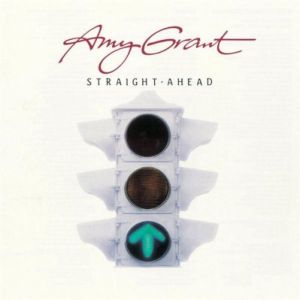
Straight Ahead is the sixth studio album by Christian music artist Amy Grant, released in 1984.

Bayleaf is the first studio album by Pearl Jam guitarist Stone Gossard. It was released on September 11, 2001, on Epic Records.

Michael Alexander Kellie was an English musician, composer and record producer.

Wind of Change is the debut solo studio album by English musician Peter Frampton. It was released in 1972. This album features appearances by Ringo Starr, Billy Preston and Klaus Voormann.
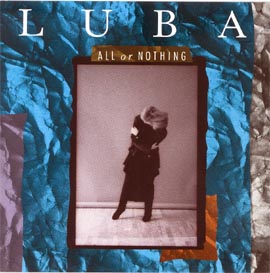
All or Nothing is the third full-length studio release on Capitol-EMI of Canada by Canadian singer, Luba and band. A powerful follow-up to her previous album, Between the Earth & Sky, and achieved platinum status due to hit singles such as "Giving Away a Miracle," "Little Salvation", "No More Words", and "Wild Heart". Pianist and fellow Canadian Paul Shaffer from the Late Show with David Letterman has a solo on the song "As Good As It Gets." Numerous other musicians have contributed to the release as well. This would be the last studio album by Luba for a decade.
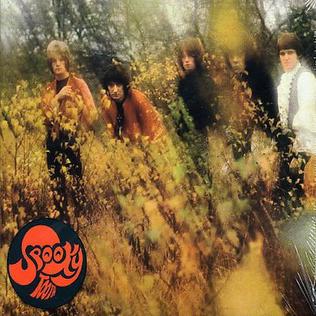
It's All About is the 1968 debut album of British band Spooky Tooth. The album was originally released in England by Island Records.

Ceremony is a 1969 album by progressive UK rock band Spooky Tooth in collaboration with French electronic and "found-object" composer Pierre Henry. The world premier was on September 2, 1970 at Olympia, Paris, France. The album was dedicated to Béatrice.

Deadicated: A Tribute to the Grateful Dead is a 1991 tribute album with music of the Grateful Dead performed by various artists.
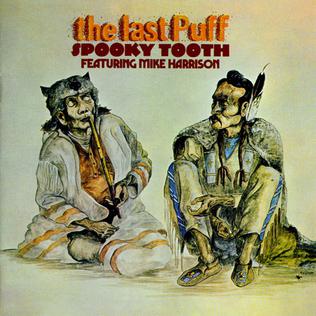
The Last Puff is an album by British rock band Spooky Tooth, released in 1970.
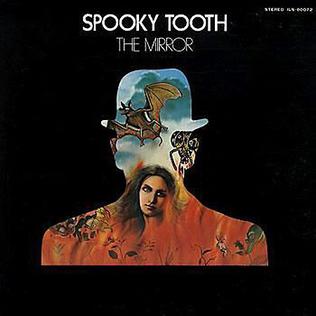
The Mirror is an album by the British rock band Spooky Tooth. It was the only Spooky Tooth album to be released without contributions from Mike Harrison. It also was their last album for nearly twenty-five years, until Cross Purpose in 1999. The Mirror was released in October 1974, one month before group members had permanently disbanded. Members went on to form such bands as Foreigner and The Only Ones.

Rainbow Rider is the third solo album by Mike Harrison, most notable as a principal lead singer for Spooky Tooth. It was released in 1975, on Island Records in North America, and Goodear Records in the United Kingdom. In addition to being part of Harrison's body of solo work, the album is notable as containing one of the earlier and comparatively rare recordings of the Bob Dylan song, "I'll Keep It With Mine", written in 1964 and recorded by Nico, Fairport Convention and Marianne Faithfull, among others. The album was recorded in Nashville, subsequent to Harrison's departure from Spooky Tooth, following the release of Witness (1973). The album features a number of Nashville's best known session musicians of that time, as well as Morgan Fisher, then of Mott the Hoople, and Mick Jones, formerly of Spooky Tooth and later founder of Foreigner. The album was produced and engineered by Chris Kimsey, whose reputation as a recording engineer had developed when he was the engineer on the Rolling Stones' Sticky Fingers, released in 1971. Rainbow Rider was one of Kimsey's first engagements as a producer. Still at an early stage of his career, Kimsey had produced Monkey Grip, the first Bill Wyman solo album, released in 1974, one year prior to Rainbow Rider.

Late Starter is the fourth solo album by Mike Harrison, best known as a principal lead vocalist of Spooky Tooth. Released in 2006, it is Harrison's first solo album in over thirty years, following the release of Rainbow Rider in 1975.

You Broke My Heart So ... I Busted Your Jaw is an album by Spooky Tooth, first released in 1973 on Island Records. It was the first album to be released after the band re-formed, following their 1970 breakup. Founding guitarist Luther Grosvenor did not rejoin the band, as he had joined Mott The Hoople as a guitarist, adopting the stage name of Ariel Bender. Grosvenor was replaced by Mick Jones, who later co-founded Foreigner while founding drummer Mike Kellie was replaced by Bryson Graham. The album was remastered and re-released with a bonus track on compact disc (CD) in January 2005 by Repertoire.

Witness is an album released by Spooky Tooth in 1973. For this album, original drummer Mike Kellie returned and substantially replaced Bryson Graham. Gary Wright remained the dominant songwriter at this stage of the band's history. Co-lead singer Mike Harrison left the band following the release of the album. The album was remastered and re-released on compact disc (CD) in January 2005 by Repertoire Records.

Listen Now is the only studio album by 801, whose live debut was released in November 1976. For this release, the group was officially billed as "Phil Manzanera/801".

Don't Freak Me Out is the first and only album released by English musician Jimmy Stevens in 1972. The album was produced by Maurice Gibb. But in the United States, it was released in January 1973 and was called Paid My Dues.

Footprint is the second solo album by American musician Gary Wright, released in 1971 on A&M Records. It contains "Stand for Our Rights", an anthem-like song calling for social unity that was issued as a single in advance of the album. Wright recorded the majority of Footprint in London with a large cast of musicians – including George Harrison, Hugh McCracken, Alan White, Klaus Voormann, Jim Gordon, Jim Keltner and Bobby Keys – many of whom, like Wright, had played on Harrison's All Things Must Pass triple album in 1970. Harrison's contributions included an uncredited role as producer, and serve as an example of his support for Wright during the early stages of the latter's solo career. The ballad "Love to Survive" is one of three tracks that feature an orchestral arrangement by John Barham.



















